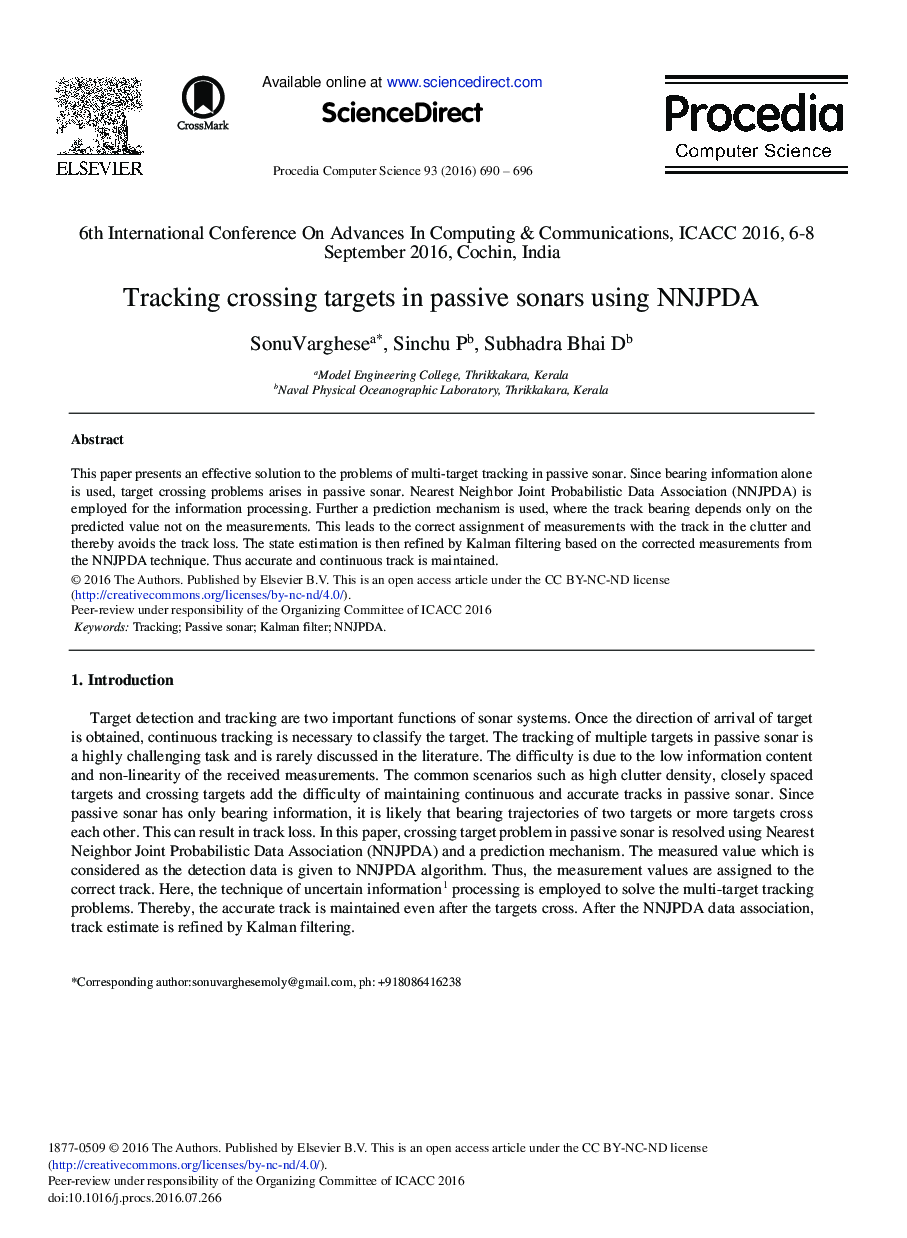| Article ID | Journal | Published Year | Pages | File Type |
|---|---|---|---|---|
| 571059 | Procedia Computer Science | 2016 | 7 Pages |
Abstract
This paper presents an effective solution to the problems of multi-target tracking in passive sonar. Since bearing information alone is used, target crossing problems arises in passive sonar. Nearest Neighbor Joint Probabilistic Data Association (NNJPDA) is employed for the information processing. Further a prediction mechanism is used, where the track bearing depends only on the predicted value not on the measurements. This leads to the correct assignment of measurements with the track in the clutter and thereby avoids the track loss. The state estimation is then refined by Kalman filtering based on the corrected measurements from the NNJPDA technique. Thus accurate and continuous track is maintained.
Keywords
Related Topics
Physical Sciences and Engineering
Computer Science
Computer Science (General)
Authors
Sonu Varghese, P. Sinchu, D. Subhadra Bhai,
